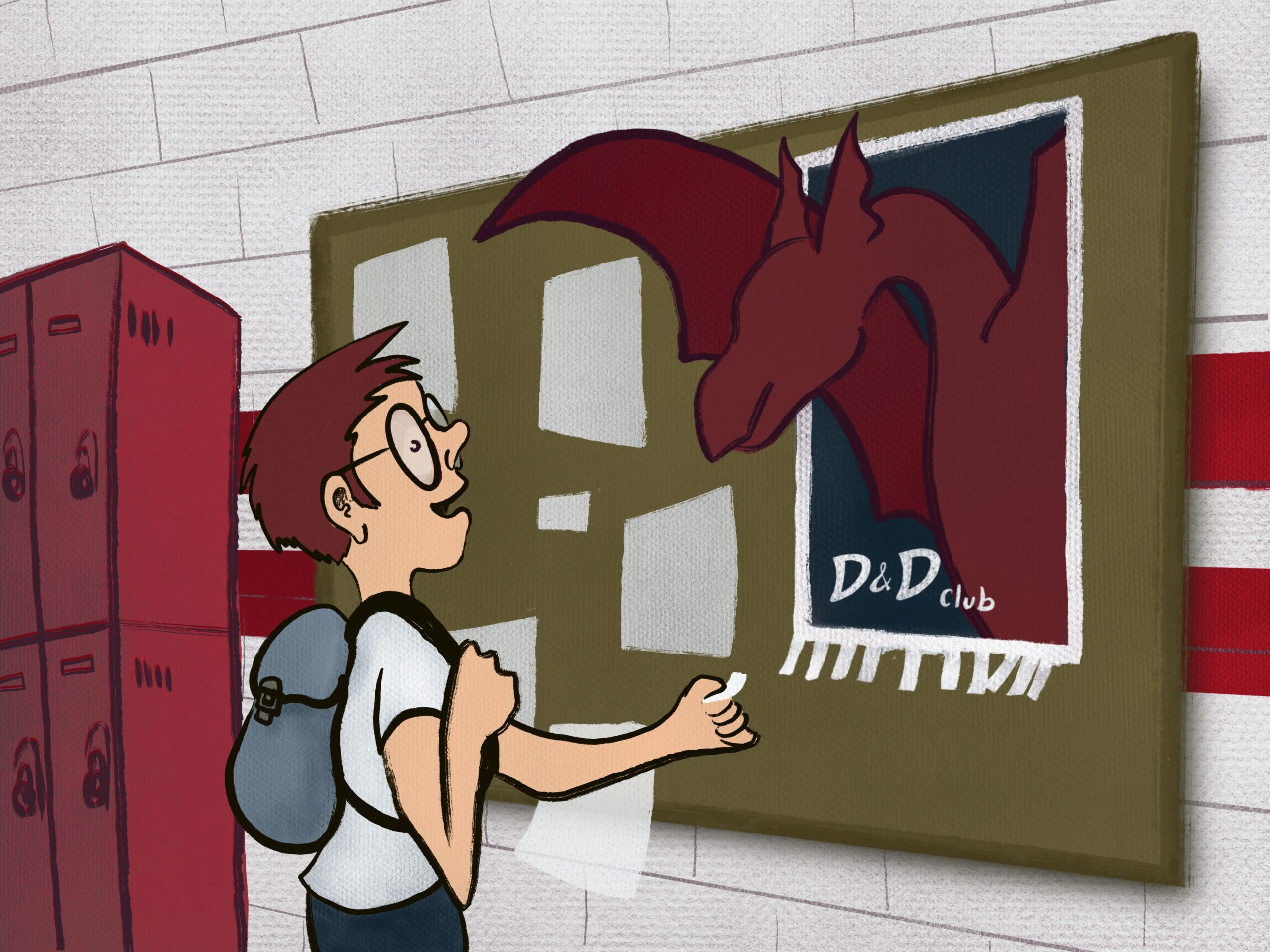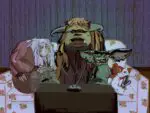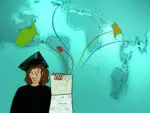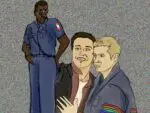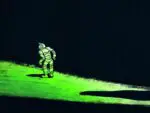Players, there are an overwhelming amount of benefits that come with playing “Dungeons & Dragons” that very few players are actually aware of. Here’s a few to get you thinking!
Interpersonal communication, soft social skills and acting skills are probably some of the most important skills that “Dungeons & Dragons” can (and does) improve. Acting classes are great to take as an adult and can really help you flourish in different ways, but acting doesn’t always cover interpersonal communication and soft social skills. In “Dungeons & Dragons” you spend a lot of time getting to know the other players and your Dungeon Master (DM). For those of you who are unfamiliar, the DM crafts the game and guides the characters through, working as a narrator, and the players have to work with each other to solve riddles and puzzles as well as fight many different mythical creatures.
Because it’s such a small group of people playing (group sizes average about five or six people, including the DM) and campaigns tend to become long-term games, there’s a lot of connecting and confidence-building that comes along as you become more comfortable with the players around you. It’s a great way to become better friends with people you already know and make new friends with people you don’t.
With many online platforms available, like Roll20 or DnDBeyond, “D&D” has a ton of flexibility! My own “Dungeons & Dragons” campaign uses both of these websites because many of us don’t even live in the same state, which demonstrates how great of a community-building opportunity “Dungeons & Dragons” can be. A lot of players struggle with finding people to play with, so the best place to look is online. There are all sorts of Facebook groups for local players as well as Reddit’s LFG (Looking for Game) subreddit. Alternatively, just recruit some friends and start anew! If you’re new to the game,there’s no better way to learn than learning with friends.
As most players know, one of the most creative elements in “Dungeons & Dragons” is the character design. It can be a little confusing, but there are a lot of online platforms for building characters that really help, like the two online platforms mentioned above. Of course, the best part of character design is finding an appearance for your character and getting to browse through all the inspiring art on the internet. Plus, it’s rewarding for DM’s to see how wildly inventive their players can be in appearance and backstory. They can get pretty wild! Whether it’s assassins who are part of secret organizations, thieves trying to rob banks, farmers wanting vengeance for their dead wives, or even just something as simple as a young adult wanting adventure, the possibilities are endless for your character. “Dungeons & Dragons” can be an intensely nonsensical game sometimes, as most players know. For example, in this episode of Critical Role, where Keylith (Marisha Ray) turns into a fish when jumping off a waterfall. In fact, if you can’t find a group, web-series like Critical Role and Dimension20 are great ways to learn the game without playing.
“Dungeons & Dragons” is a wildly creative game with a heavy focus on all things fantastical. If your party wants to, they can live in the fantasy small town of their dreams and do whatever they’d like. You have infinite creative freedom—especially if you’re the DM. It’s incredibly rewarding, as a DM, to see your players enjoying a campaign of your making or a world of your building.
And for those of you who need to brush up on your math skills, there is math and statistics in the game! Nothing overwhelming, really, but just enough to get your brain moving. Once you learn how to do it, it’s easy. Don’t let the math dissuade you from playing! Memory skills and notetaking will prove useful for college students as well. There are a lot of things to remember and make note of when playing, like non-player character names, town names, specific clues for puzzles, etc. There are plenty of opportunities to sharpen and build upon these skills.
And of course, the cultural, ethical, social, personal exposure and development opportunities are well worth it, too. Whether you weave some of these into your backstory as a character, or introduce them to the plot as a DM, this is a great way to really find some interesting growth opportunities. Everyone comes from a different place in life and tends to show it through their characters, so it’s always a really fun way to build different types of growth experience when you get to see where they all come from and come together. It’s always rewarding to get to see how players and characters grow through the campaign, with interesting takes on story events or character interactions coming to life with their roleplay skills. Getting to experience different cultures and social situations that you may not otherwise get to experience, really builds upon the rewards of playing the game.
“Dungeons and Dragons” is also a great social outlet for those on the Autism spectrum. It’s a fantastic way for people who are introverted to get that social aspect everyone needs in their lives. There’s a lot of social benefits to “Dungeons & Dragons,” such as creating lasting relationships, finding new friends, learning better ways to engage in conversation, learning to be observant in conversation, and many other things.
And, let’s not forget, you can put it on your resume!
“Dungeons and Dragons” is always welcoming new players and is great for ones familiar with the game as well. Whether you reach a high enough level to fight a dragon, or just stick to slaying local monsters, there’s so much to explore in these fantasy worlds of your DM’s creation. These are just some of the benefits from playing the game and, even if you’re already familiar with it, this hopefully encourages you to do what you do best: slay some dragons.


